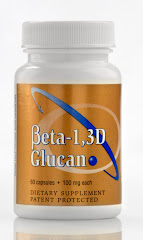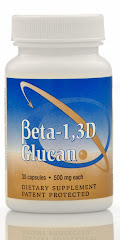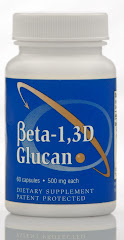The research team from New York's University of Rochester found that drugs used to destroy cancer cells may actually be more harmful to healthy cells in the brain.
The research which is published in the Journal of Biology carried out tests with three drugs that treat cancer, namely, carmustine, cisplatin and cytosine arabinoside.
Even at very low concentrations all three drugs were toxic to several types of brain cells whose job is to repair other cells in the brain.
Oligodenrocyte cells, which play a key role in the transmission of messages around the nervous system were affected by the three drugs, as well as, damage to the cells in the hippocampus, which is responsible for memory and learning.
This may explain why seizures and memory loss associated with chemotherapy are known side effects. source
October 2010 edition of Breast Cancer Research and Treatment reports researchers at the Indiana University Melvin and Bren Simon Cancer Center used brain imaging to show that changes in brain tissue can occur in breast cancer patients undergoing chemotherapy.
To obtain a baseline, Dr. Andrew Saykin, director of the Indiana University Center for Neuroimaging and a researcher at the IU Simon Cancer Center along with his colleagues studied structural MRI scans of the brain from breast cancer patients following surgery, but before radiation or chemotherapy. Scans were then repeated one month and one year after chemotherapy was completed.
The researchers found gray matter changes were most prominent in the areas of the brain that are consistent with cognitive dysfunction during and shortly after chemotherapy, ranging from subtle effects to more pronounced in others. source
According to the book: Reclaiming Our Health by John Robbins, 75% of oncologists surveyed indicated that "all chemotherapy programs are unacceptable to them and their family members."
For an interesting look at natural alternatives to chemotherapy or in conjunction with chemotherapy, check out:
Bakers Yeast Beta Glucan - Immune supplement
HealthIsInReach - Devices for Cancer Therapy
Showing posts with label cancer. Show all posts
Showing posts with label cancer. Show all posts
Sunday, October 10, 2010
Sunday, February 7, 2010
Beta Glucan Aids Lymphoma Patient
Lymphoma Patient Testimonial:
Due to my diagnosis of Lymphoma in April 2008, I decided to change my eating habits by eliminating chicken and red meats, reducing sugar and white flour along with foods made with those ingredients and eating more fruits and vegetables.
I thought I was making progress but was informed in Dec. 2008 after undergoing 3 PET Scans over the course of 8 months that my largest retroperitoneal lymph nodes were holding at 19mm and others at 14mm, I needed to do something more, but what?
In Feb. 2009, Nancy, from HealthIsInReach.com, suggested I include Beta-1,3D Glucan, Curcumin, the FIR Dome and the Original Sun Ancon Chi Machine to my regimen which at that time consisted of Vit. D3, Ester C, B Complex, Fish Oil, Resveratrol, Vit. E, Selenium, Sublingual B-12, CoQ10, and Zinc.
One thing to mention at this time, concerns my cholesterol, in June 2008 I had a cholesterol reading of 284, then in Jan. 2009 my cholesterol was 260, but things started happening after taking the Beta-1,3D Glucan, Curcumin and using the FIR Dome and Chi Machine, in May 2009 my cholesterol was down to 161, then in Aug. 2009, my cholesterol came down even further to a reading of 138.
In Oct. 2009 I went through my 4th PET Scan, which revealed shrinkage to my Retroperitoneal lymph nodes. The 19mm lymph nodes diagnosed on Dec. 2008 came in at 10mm and my Dec. 2008 14mm lymph nodes were down to 7mm. I couldn't believe it, I honestly believe the products Nancy suggested has allowed me better PET Scan and cholesterol results.
I can't stop now though, I know I just have to keep plugging away with my daily regimen and who knows, my cancer may be gone in no time, a prayer or two on my behalf wouldn't hurt and would be much appreciated as well. - J.M.
Due to my diagnosis of Lymphoma in April 2008, I decided to change my eating habits by eliminating chicken and red meats, reducing sugar and white flour along with foods made with those ingredients and eating more fruits and vegetables.
I thought I was making progress but was informed in Dec. 2008 after undergoing 3 PET Scans over the course of 8 months that my largest retroperitoneal lymph nodes were holding at 19mm and others at 14mm, I needed to do something more, but what?
In Feb. 2009, Nancy, from HealthIsInReach.com, suggested I include Beta-1,3D Glucan, Curcumin, the FIR Dome and the Original Sun Ancon Chi Machine to my regimen which at that time consisted of Vit. D3, Ester C, B Complex, Fish Oil, Resveratrol, Vit. E, Selenium, Sublingual B-12, CoQ10, and Zinc.
One thing to mention at this time, concerns my cholesterol, in June 2008 I had a cholesterol reading of 284, then in Jan. 2009 my cholesterol was 260, but things started happening after taking the Beta-1,3D Glucan, Curcumin and using the FIR Dome and Chi Machine, in May 2009 my cholesterol was down to 161, then in Aug. 2009, my cholesterol came down even further to a reading of 138.
In Oct. 2009 I went through my 4th PET Scan, which revealed shrinkage to my Retroperitoneal lymph nodes. The 19mm lymph nodes diagnosed on Dec. 2008 came in at 10mm and my Dec. 2008 14mm lymph nodes were down to 7mm. I couldn't believe it, I honestly believe the products Nancy suggested has allowed me better PET Scan and cholesterol results.
I can't stop now though, I know I just have to keep plugging away with my daily regimen and who knows, my cancer may be gone in no time, a prayer or two on my behalf wouldn't hurt and would be much appreciated as well. - J.M.
Sunday, October 4, 2009
Who Will Benefit From Taking Beta Glucan?
Who will benefit from taking Beta Glucan?
Everyone has the potential to benefit from taking Beta Glucan in the correct dose. Especially people with impaired immunity, or who are susceptible to allergies, autoimmune disease, infectious disease, slow and incomplete healing and cancer, undergoing radiation or chemotherapy, or exposed to radiation from external sources such as UV or electromagnetic fields, or with a high risk of cardiovascular disease.
People under physical or emotional stress, or who have poor nutrition or who consume food preservatives.
Beta Glucan can also help to slow the aging process.
Athletes and those who work out extensively will notice more benefit from their workouts while taking Beta Glucan.
Animals will also benefit from taking Beta Glucan, because their immune systems are very similar to ours. - source
Everyone has the potential to benefit from taking Beta Glucan in the correct dose. Especially people with impaired immunity, or who are susceptible to allergies, autoimmune disease, infectious disease, slow and incomplete healing and cancer, undergoing radiation or chemotherapy, or exposed to radiation from external sources such as UV or electromagnetic fields, or with a high risk of cardiovascular disease.
People under physical or emotional stress, or who have poor nutrition or who consume food preservatives.
Beta Glucan can also help to slow the aging process.
Athletes and those who work out extensively will notice more benefit from their workouts while taking Beta Glucan.
Animals will also benefit from taking Beta Glucan, because their immune systems are very similar to ours. - source
Friday, September 25, 2009
The Immune Response Enhanced by Beta-1,3D Glucan - pg.3
The Immune Response Enhanced by Beta-1,3D Glucan by A.J.Lanigan - pg.3
When a Class II MHC molecule is presented by the APC, the B cell/antibody process begins. This is the humoral side of the immune system. The antibodies released by the B cells bind to antigens on the surfaces of free-floating viruses. Besides making it easier for macrophages to destroy viruses, this binding signals blood components called complement to puncture holes in the viruses. The Complement System is made up of 25 proteins that work with the antibodies to destroy invaders. They facilitate phagocytosis (eating by phagocytes) or they directly puncture the invader's cell membrane. C3 is the key protein that triggers the "complement cascade". This cascade results into a "membrane attack complex" that literally blasts a hole into the antibody marked prey. Fragments thrown off by this process bring into play mast cells and basophils. By releasing their chemical contents, they produce the rediness, warmth, and swelling of the inflammatory response.
Finally, as the infection is brought under control, the activated T and B cells are turned off by suppressor T cells (a T-8 subset). However, a few "memory cells" (another T-8 subset) remain behind to respond quickly if the same virus attacks again. Immunologists believe that the body fights cancer in much the same way it seeks to eliminate viruses. Further study of the immune system is expected to reveal ways to bolster it, allowing the body to become a more active partner in the fight against cancer. - source
When a Class II MHC molecule is presented by the APC, the B cell/antibody process begins. This is the humoral side of the immune system. The antibodies released by the B cells bind to antigens on the surfaces of free-floating viruses. Besides making it easier for macrophages to destroy viruses, this binding signals blood components called complement to puncture holes in the viruses. The Complement System is made up of 25 proteins that work with the antibodies to destroy invaders. They facilitate phagocytosis (eating by phagocytes) or they directly puncture the invader's cell membrane. C3 is the key protein that triggers the "complement cascade". This cascade results into a "membrane attack complex" that literally blasts a hole into the antibody marked prey. Fragments thrown off by this process bring into play mast cells and basophils. By releasing their chemical contents, they produce the rediness, warmth, and swelling of the inflammatory response.
Finally, as the infection is brought under control, the activated T and B cells are turned off by suppressor T cells (a T-8 subset). However, a few "memory cells" (another T-8 subset) remain behind to respond quickly if the same virus attacks again. Immunologists believe that the body fights cancer in much the same way it seeks to eliminate viruses. Further study of the immune system is expected to reveal ways to bolster it, allowing the body to become a more active partner in the fight against cancer. - source
Subscribe to:
Posts (Atom)



